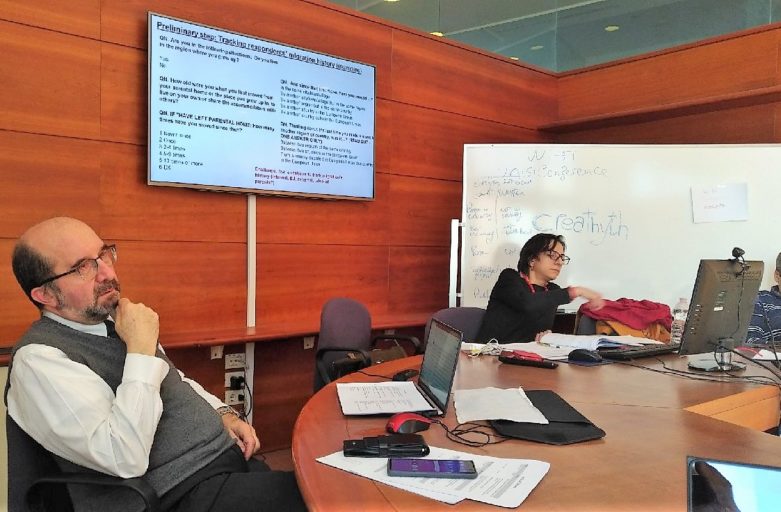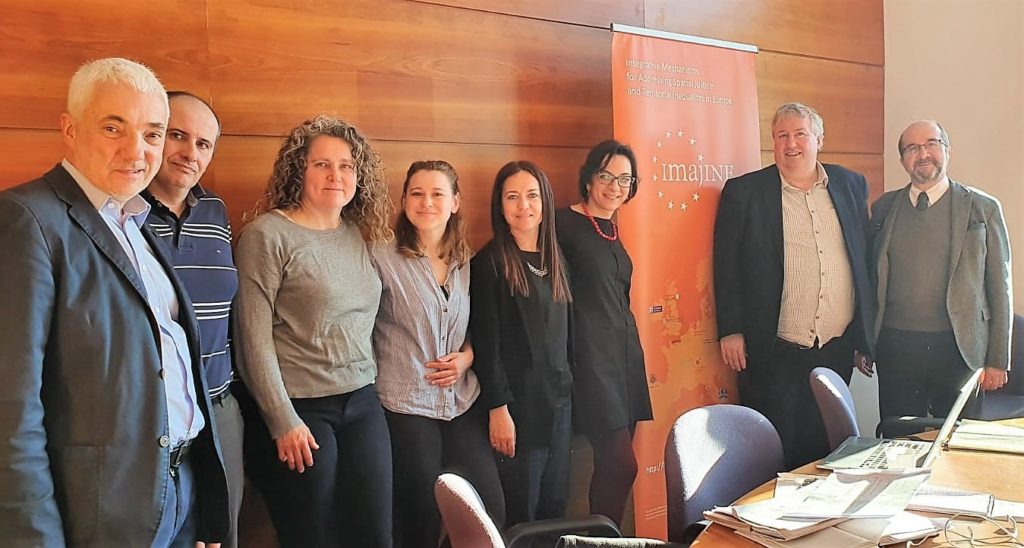The IMAJINE project develops around three key issues: (1) To understand and map socio-spatial inequalities across territories within contemporary Europe (i.e. across regions in countries, countries in Europe, and regions in Europe) and how to address them– WPs 1, 2, 3 and 6; (2) To analyse whether and to what extent socio-spatial inequalities trigger the political mobilisation of regionalist actors demanding for some territorial autonomy – WP7; (3) To examine the link between such inequalities and migration flows – WP5. These three core themes are framed within the Spatial Justice approach, which conceives of socio-spatial inequalities not just in terms of economic unbalances, but as a matter of (un)fairness, lack of opportunity, and “right to”. Assuming the Spatial Justice framework also means to address inequalities not just in terms of economic redistribution, but in terms of empowering regions and providing them with the necessary opportunities to reduce the gaps fairly.
All IMAJINE’s researching teams are investigating these topics by using a wide range of approaches, methods and scope of analyses. At the crossroads of these researches, there is WP4, coordinated by the University of Siena (Italy), which aims at investigating all the core IMAJINE’s core topics from the people’s perspective. Accordingly, WP4’s research questions are:
- (1) Perception of socio-spatial inequalities: Do people actually perceive that there is a gap between regions within the same country, or between country/regions within the EU? Do they perceive it as a matter of (in)justice?
- (2) Addressing Socio-spatial Inequalities (I) Policy approach – Territorial cohesion and Spatial Justice: Do people support measures for reducing these gaps? Do they support solidarity and territorial cohesion measures as a matter of spatial justice?
- (3) Addressing Socio-spatial Inequalities (II) Polity approach – Territorial autonomy: Do people consider greater regions’ empowerment as a way to address inequalities?
- (4) ( Socio-spatial inequalities and migration: Do people perceive spatial inequalities as a cause of migration flows? And, on their turn, do people perceive migration flows as a further source of spatial inequalities?
From 13th to 14th February, IMAJINE’s researchers met in Siena to develop ideas on how to develop the survey questionnaire that will explore citizens’ attitudes on these dimensions. Surrounded by the amazing (and exceptionally warm) Tuscany landscape, the two-days workshop provided insights for innovative ways to measure people’s perceptions and preferences on socio-spatial inequalities, redistributive measures, territorial autonomy, and migration. The meeting was useful to examine the challenges of designing a survey questionnaire, but also to figure out solutions and ideas to address them.
Above all, however, the Siena workshop was a great occasion to bring together an interdisciplinary group of researchers, to share their knowledge and the first results emerging from the IMAJINE’s project, to be included in the WP4 survey. Indeed, this is the added value of the IMAJINE project, an interdisciplinary community of academics that is promoting an innovative understanding on questions of territorial inequalities and spatial justice, through different, yet closely interconnected, approaches and perspectives.
Linda Basile (University of Siena)


